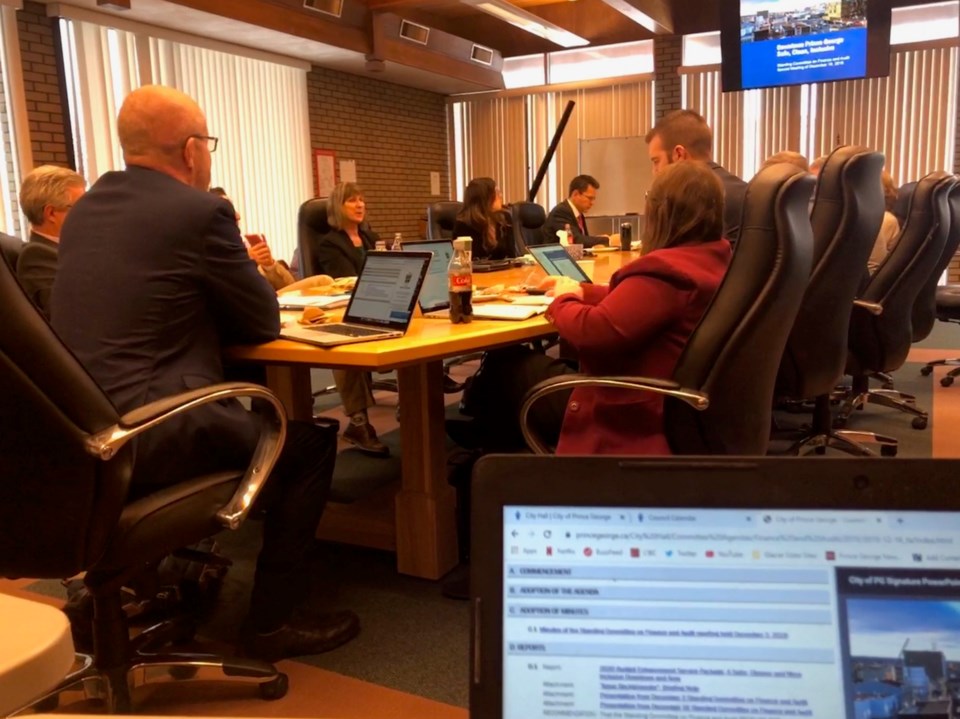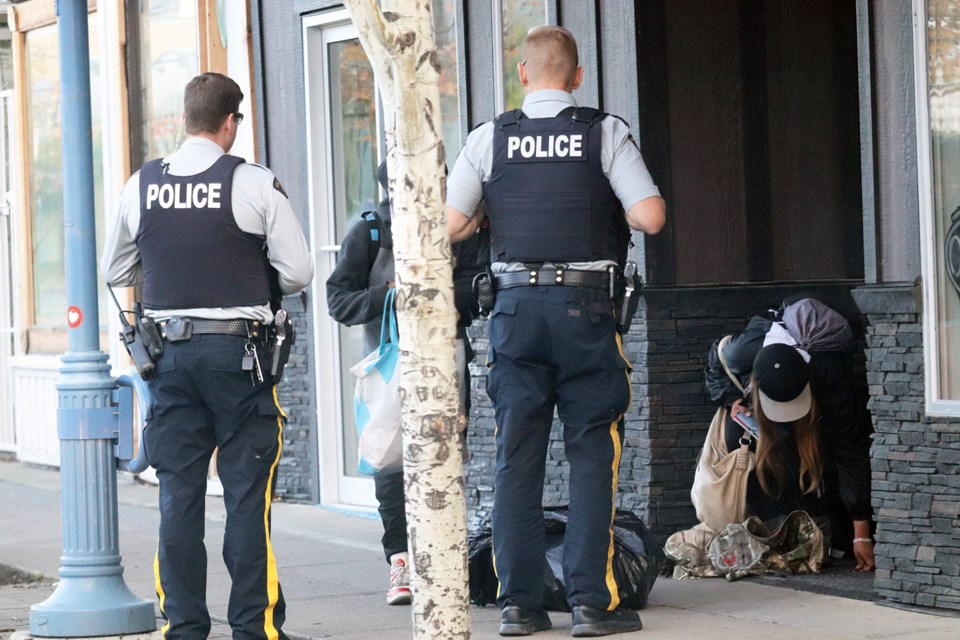Prince George will officially be discussing a suite of proposed service enhancements to tackle the social issues the city has been facing, particularly downtown, during the budget discussions in January.
These service enhancements are responses specific to the social issues related to drug addiction, mental health and homelessness.
In 2020, council will discuss whether or not to differ monies from snow removal, road rehabilitation and general infrastructure reinvestment or other areas to offset the tax increase needed to fund the service enhancements.
The suite of services totals $2.6 million representing a possible 2.37 per cent tax increase, alongside the 2.32 per cent increase needed to maintain existing services.
A special Finance and Audit Committee meeting was held yesterday afternoon (Dec. 16) to determine if these service enhancements should be brought forward for discussion during the budget meetings early next year.
The meeting was well attended with representatives from Northern Health, the Prince George Chamber of Commerce, the Downtown Prince George and Gateway Business Improvement Associations and other stakeholders in the gallery.
“We have the budget coming up in 2020 so we put this special meeting together so we can review this in more detail and give it the attention it deserves after the special meeting we had last week,” says Coun. Garth Frizzell, who is the chair of the committee.
He noted he’s never seen this level of interest in a finance and audit committee meeting before, which speaks to the importance of the issues at hand.
 The special finance and audit committee meeting took place in the conference room on the second floor of City Hall. (via Hanna Petersen)
The special finance and audit committee meeting took place in the conference room on the second floor of City Hall. (via Hanna Petersen)This special finance and audit committee meeting follows the Dec. 3 public meeting on social issues, which saw hundreds of people gather in council chambers to voice their concerns and considerations.
The city spent over $1.7 million on downtown initiatives for 2019.
However, as an issue backgrounder provided in the committee notes suggests, there is a strong public sentiment that more needs to be done and that although social issues are not traditionally local government responsibility city hall and the police should manage downtown issues.
“Despite numerous proactive policing, bylaw and social initiatives, the general social atmospherics of the community indicate the demand for additional response measures. A comprehensive downtown safety strategy may alleviate some of these concerns and support the main effort of a livable and vibrant downtown core,” reads the backgrounder.
“The proposed service enhancement bundle represents the city’s commitment to working with our partners toward long-term management of the complex social challenges of the current era. It is not intended to “solve,” but rather better manage, these issues.”
The backgrounder compared the social issues seen in the city, and around the country, to structural fires in the early 20th century that merited the creation of fire departments and emergency services. Structural fires have not been solved -- the backgrounder points out -- but now occur at very low rates of incidence to a level of societal acceptance and is an example of a previous complex problem that has been solved through a multi-pronged approach.
“What we are really trying to get here is the synchronization and layering of services. By layering bylaw, police, security and social outreach together it provides almost 20 hours-a-day of services in the downtown area,” explains Adam Davy, director of community services and public safety.
“The intent being these service enhancements would provide a cleaner safer more inclusive downtown area. I think the key thing here is not to look at this as a project with a start or an end date or a problem to solve, but rather just a suite of enhancements that can better manage the issues today.”
One of the main points of discussion during the meeting was how to offset the costs of the tax increase required to fund this level of enhancements.
Three areas were identified: snow removal, road rehabilitation, and the general infrastructure reinvestment fund (GIRF).
“It’s a bit of a gamble,” says finance director Kris Dalio, regarding the snow removal budget. “You set an average years’ dollar figure and if you get a bad snow year it hurts financially if you get a good one you can set that aside for future years. So to adjust the snow is really adjusting the risk of a gamble.”
A cut to road rehabilitation and GIRF would mean maintenance on existing assets would be lessened.
“The purchasing power of the same dollar figure decreases every year,” adds Dalio.
The committee ultimately approved a resolution to receive the information and requested administration to present options at the budget meetings to shift budget monies to deliver the proposed enhancement and minimize the tax levy looking specifically at the options of snow removal, GIRF, and road rehabilitation.
A Select Committee on A Safe, Clean and Inclusive Downtown was also officially established at last night’s council meeting, which will work to further these discussions and present solutions to council.
Council’s budget meetings are set for Monday, Jan. 6 and Wednesday, Jan. 8.









